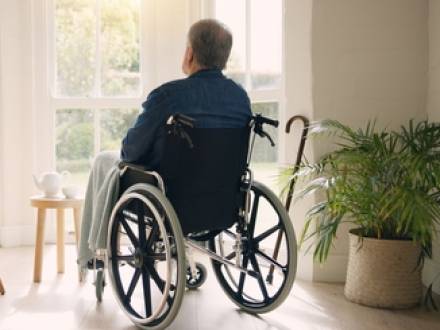 Stars
StarsRecognizing Signs of Emotional Abuse in a Maryland Nursing Home
 Families often worry about the safety and well-being of their loved ones in nursing homes. Physical neglect is easier to spot than emotional abuse. However, emotional pain can be just as damaging. If you suspect your loved one is suffering emotional abuse, a Bel Air, MD nursing home abuse attorney can help families recognize the warning signs and hold facilities accountable under Maryland law.
Families often worry about the safety and well-being of their loved ones in nursing homes. Physical neglect is easier to spot than emotional abuse. However, emotional pain can be just as damaging. If you suspect your loved one is suffering emotional abuse, a Bel Air, MD nursing home abuse attorney can help families recognize the warning signs and hold facilities accountable under Maryland law.
Types of Emotional Abuse Found in Maryland Nursing Homes
Emotional abuse in a nursing home takes many forms, ranging from subtle mistreatment to overt hostility. Staff members may belittle or mock residents, isolate them from friends or activities, or use intimidation to maintain control. Residents may be threatened with less care or disciplined for speaking up.
Maryland law directly addresses this issue. Under § 14-101 of the Family Law Code, abuse includes the "sustaining of mental injury by an act that is not accidental." The law makes it clear that abuse does not have to cause visible injuries. Under Md. Code, Criminal Law § 3-604, caregivers can face charges for abusing or neglecting vulnerable adults. These protections give victims and families the right to act when staff violate the standard of care and harm rather than help residents.
Common Signs of Emotional Abuse in a Nursing Home
Under Md. Code, Health–General § 19-343, nursing homes are required to treat residents with dignity and respect. Unfortunately, staff do not always uphold this law. Because emotional abuse does not always leave physical evidence, family members must pay close attention to behavioral and psychological changes. Warning signs can include:
-
Sudden withdrawal from social interactions or favorite activities
-
Unexplained anxiety, fear, or depression
-
Hesitation to speak in front of staff members
-
Visible distress when certain caregivers enter the room
-
Complaints of being ignored, yelled at, or treated unfairly
Evidence You Need To Prove Emotional Abuse in a Nursing Home
Proving your loved one is suffering emotional abuse in a nursing home requires careful documentation and fast action. Surveillance footage can be one of the strongest forms of evidence in an emotional abuse case. Video recordings may capture staff mistreating residents or confirm patterns of neglect. Even a few minutes of footage can validate your loved ones’ story and strengthen your claim in court.
Types of evidence that can help you protect your loved one include:
-
Detailed notes and observations: Keep records of conversations with your loved one, including dates and descriptions of emotional or behavioral changes.
-
Witness testimony: Statements from other residents, visitors, or even staff members can support claims of mistreatment.
-
Medical or psychological evaluations: Professional assessments can connect emotional issues to the claims of abuse.
-
Facility records: Incident reports, care logs, and staff disciplinary files may reveal a pattern of neglect or misconduct.
If your loved one has been isolated, denied visitation, or subjected to verbal threats, these details should be reported immediately to Maryland’s Adult Protective Services or the Office of Health Care Quality. Quick reporting protects them and helps prevent abuse of other residents.
Contact a Bel Air, MD Nursing Home Abuse Attorney Today
If you suspect emotional abuse in a nursing home, legal action may be the best way to stop it and recover damages. Attorney Andrew A. Serafini, Jr. has more than 12 years of experience, giving every case his direct personal attention. Having grown up in Hagerstown and remaining active in the local community, he understands the importance of protecting Maryland families. Clients find him supportive and compassionate while he takes an aggressive approach with insurance companies and negligent facilities.
At Serafini Law, we work on a contingency fee basis, so you do not pay unless we recover compensation on your behalf. Call 240-744-1600 today to schedule a free consultation with a Harford County, MD nursing home abuse lawyer you can trust.





